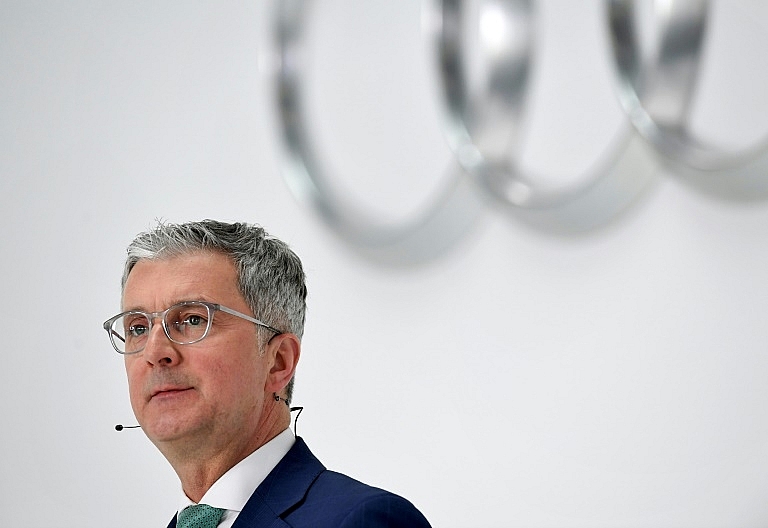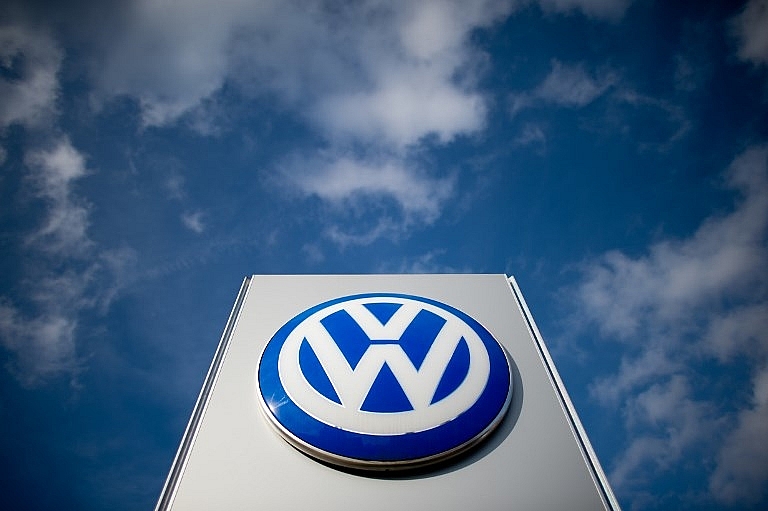Audi CEO arrested over Volkswagen emissions scandal
 |
| Audi CEO Rupert Stadler. Source: Christof Stache / AFP |
In the morning of June 18, Audi’s parent company—Volkswagen—officially announced that CEO Audi Rupert Stadler was arrested by the German authorities. “The presumption of innocence remains in place for Mr. Stadler,” wgntv.com cited Volkswagen’s representative as saying.
Stadler was detained because investigators worried that he might seek to suppress evidence in connection with the investigation, Munich prosecutors said. His home was searched last week.
The arrest occurred several days after the German authorities fined Volkswagen for EUR1 billion ($1.16 billion) for its global emission fraud. The information also drove down Volkswagen’s stock price by 2.5 per cent yesterday afternoon.
Newswire nbcnews.com stated that in addition to Stadler, 20 more people are under suspicion in the Audi probe, which focuses on cars sold in Europe that are believed to be equipped with illegal software to manipulate diesel emissions during regular driving.
The 55-year-old Stadler joined Volkswagen in the early 1990s and has been Audi’s CEO since 2007 and a member of Volkswagen’s management board since 2010. He is the highest level leader of Volkswagen arrested in relation to the emissions scandal that exploded in 2015.
| Emission fraud plagues famous German car makers |
Accordingly, Volkswagen was found to have purposely programmed its turbocharged direct injection (TDI) diesel engines to activate emission controls only during laboratory emissions testing, which lowered the vehicles’ NOx (a generic term for the nitrogen oxides that are most relevant for air pollution, namely nitric oxide (NO) and nitrogen dioxide (NO2)) output to meet US standards during regulatory testing, while during normal driving the car emitted up to 40 times more NOx.
After the violation came to light, the German automaker had to pay a fine of $18 billion in the US and spent $8 billion to recall vehicles equipped with the software.
 |
| Volkswagen may come to an end Source: Julian Stratenschulte / AFP |
Nbcnews.com stated that in 2017, the US federal court ordered Volkswagen to pay a $2.8 billion criminal penalty negotiated as part of a settlement with the US Justice Department. In total, Volkswagen has incurred more than $30 billion in charges over the scandal—a figure that includes the price of buying back almost 500,000 vehicles sold in the US.
In addition, Volkswagen was rolling EUR20 billion ($21.1 billion) of debts from 13 banks, which has been exerting considerable pressure on the manufacturer. To deal with these loans, the German car maker planned to issue bonds. In addition, newswire Reuters quoted an unofficial source that Volkswagen could sell its luxury car brands like Lamborghini, Bentley, and Ducati if it could not repay its debts.
In late 2016, the German car manufacturer also cut 30,000 jobs to save EUR3.7 billion ($3.92 billion) per year until 2020.
Emission violations were uncovered not only at Volkswagen, but Mercedes-Benz and BMW as well. In an announcement on July 22 last year, the European Commission (EC) confirmed to the German Der Spiegel magazine that the institution has been investigating frequent meetings among the car brands’ representatives to agree on technical specifications on grips, engines, and emission systems.
The magazine also stated that there has been an unspoken agreement between the sides since 1990.
What the stars mean:
★ Poor ★ ★ Promising ★★★ Good ★★★★ Very good ★★★★★ Exceptional
Related Contents
Latest News
More News
- Temporary relief for food imports as businesses urge overhaul of regulations (February 07, 2026 | 09:00)
- Opella and Long Chau join forces to enhance digestive and bone health (February 06, 2026 | 18:00)
- Vietnam-South Africa strategic partnership boosts business links (February 06, 2026 | 13:28)
- Sun PhuQuoc Airways secures AJW Group support for fleet operations (February 06, 2026 | 13:23)
- Pegasus Tech Ventures steps up Vietnam focus (February 05, 2026 | 17:25)
- The generics industry: unlocking new growth drivers (February 04, 2026 | 17:39)
- Vietnam ready to increase purchases of US goods (February 04, 2026 | 15:55)
- Steel industry faces challenges in 2026 (February 03, 2026 | 17:20)
- State corporations poised to drive 2026 growth (February 03, 2026 | 13:58)
- Why high-tech talent will define Vietnam’s growth (February 02, 2026 | 10:47)

 Tag:
Tag:
























 Mobile Version
Mobile Version